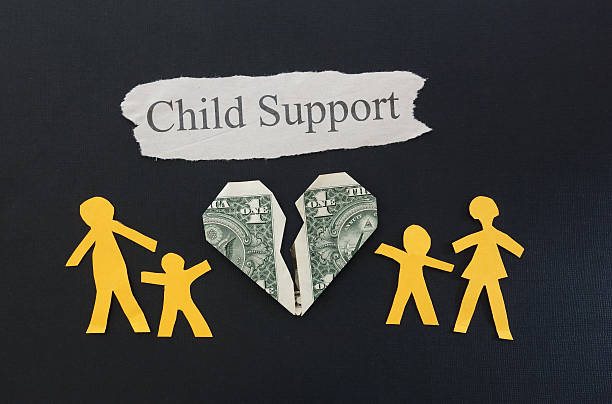
The state is committed to having parents meet their child support obligations; about 72% of child support cases had a formal enforcement action in the fiscal year 2019–2020. It is worth noting that child support amounts in California are not set at a fixed rate, which goes against common belief.
Instead, several factors determine them. While child support is intended to cover basic necessities such as food, clothing, and shelter, it also covers other expenses like medical care, education, extracurricular activities, and childcare. The calculation of the minimum child support in California will be based on the state guidelines that judges must follow when making a child support determination.
This article will cover the minimum child support amount established by California law. Discover the process of calculating the amount and the various factors that can impact it.
Overview of Child Support Laws
Child support laws in California ensure that both parents have a legal obligation to financially support their children, regardless of their relationship status. The state has established guidelines for calculating child support payments, taking into account various factors such as the income of each parent, the amount of time the child spends with each parent, and additional expenses like healthcare and education.
Child support payments in California typically end when the child reaches the age of eighteen or finishes high school, whichever occurs first. According to child support attorney Janet Ewing, there are certain circumstances where extended assistance may be necessary, particularly when the child has special needs. To avoid any legal issues, a parent needs to comply with the court’s instructions regarding child support payments. Adjustments to child support orders may be required in the event of significant changes in circumstances, such as a parent experiencing unemployment or a substantial increase in income.
Factors Affecting Child Support Payments
The court takes into account the income and earning capacity of each parent, which includes wages, salaries, bonuses, commissions, and other factors. Additional factors to consider are the parents’ number of children, the amount of time each parent spends with the child, and any potential tax deductions that either parent may be eligible for.
The child’s educational needs, medical expenses, and any required childcare costs all have an impact on child support payments. The court also considers any unique requirements the child may have that could impact the total support amount.
Calculation Method for Minimum Support
In California, the calculation of minimum child support usually involves using a formula that considers the incomes of both parents, the amount of time each parent spends with the child, and any extra expenses for childcare or healthcare.
In California, the court uses the statewide uniform guideline formula to calculate child support. This formula considers the net disposable income of each parent and factors in the number of children needing support. Parents have to provide accurate financial information during the calculation process for the child to receive adequate support.
Understanding Deviations From Minimum Amount
In some cases, the court may decide to deviate from the standard calculation of child support based on factors like the special needs of the child, the high income of one or both parents, educational or healthcare needs, or if the child spends a significant amount of time with one parent.
If there are extraordinary expenses related to raising the child, such as medical treatments or educational costs, the court makes sure that these needs are met. If one parent has a high income that far exceeds the standard guidelines, the court may adjust the child support amount accordingly. Consulting with a family law attorney can help you understand your rights and options in these situations.
Resources for Child Support Assistance
For assistance with child support in California, consider looking at the available resources that can provide guidance and support.
- The California Department of Child Support Services (DCSS). Theyoffer various tools to help parents with the child support system, and by going to their website, you can find information on calculating child support, modifying existing orders, and enforcing support orders. DCSS also has online services that allow you to make payments, check the status of your case, and communicate with your caseworker.
- Local family law facilitators or self-help centers. These centers offer free assistance with filling out court forms, understanding legal procedures, and answering questions about child support. They can be particularly helpful if you’re representing yourself in court.
- Non-profit organizations like Legal Aid Society or local bar associations. They may also provide low-cost or pro bono legal services for child support matters, offering legal advice, representation in court, and assistance in negotiating child support agreements.
Conclusion
The minimum child support amount in California is determined based on the parent’s income, custody arrangements, and the needs of the child. The court follows the state guidelines to calculate child support payments with the well-being of the child in mind. If you need assistance with child support matters, there are resources available to help parents handle the process and get the best outcome for all parties involved.





